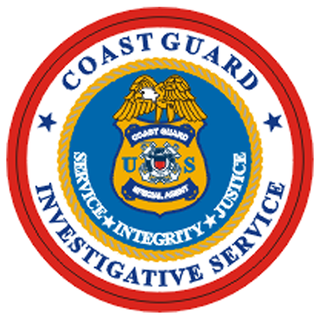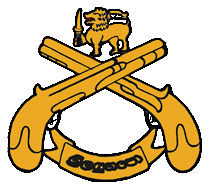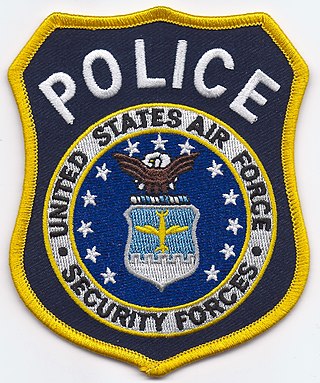Non-judicial punishment is any form of punishment that may be applied to individual military personnel, without a need for a court martial or similar proceedings.
Civilians under international humanitarian law are "persons who are not members of the armed forces" and they are not "combatants if they carry arms openly and respect the laws and customs of war". It is slightly different from a non-combatant, because some non-combatants are not civilians. Civilians in the territories of a party to an armed conflict are entitled to certain privileges under the customary laws of war and international treaties such as the Fourth Geneva Convention. The privileges that they enjoy under international law depends on whether the conflict is an internal one or an international one.
Military justice is the legal system that governs the conduct of the active-duty personnel of the armed forces of a country. In some nation-states, civil law and military law are distinct bodies of law, which respectively govern the conduct of civil society and the conduct of the armed forces; each body of law has specific judicial procedures to enforce the law. Among the legal questions unique to a system of military justice are the practical preservation of good order and discipline, command responsibility, the legality of orders, war-time observation of the code of conduct, and matters of legal precedence concerning civil or military jurisdiction over the civil offenses and the criminal offenses committed by active-duty military personnel.

Military police (MP) are law enforcement agencies connected with, or part of, the military of a state. In wartime operations, the military police may support the main fighting force with force protection, convoy security, screening, rear reconnaissance, logistic traffic management, counterinsurgency, and detainee handling.
The Uniform Code of Military Justice (UCMJ) is the foundation of the system of military justice of the armed forces of the United States. The UCMJ was established by the United States Congress in accordance with their constitutional authority, per Article I, Section 8, which provides that "The Congress shall have Power. .. to make Rules for the Government and Regulation of the land and naval forces" of the United States.

The commanding officer (CO) or sometimes, if the incumbent is a general officer, commanding general (CG), is the officer in command of a military unit. The commanding officer has ultimate authority over the unit, and is usually given wide latitude to run the unit as they see fit, within the bounds of military law. In this respect, commanding officers have significant responsibilities, duties, and powers.
An Article 32 hearing is a proceeding under the United States Uniform Code of Military Justice, similar to that of a preliminary hearing in civilian law. Its name is derived from UCMJ section VII Article 32, which mandates the hearing.
Courts-martial of the United States are trials conducted by the U.S. military or by state militaries. Most commonly, courts-martial are convened to try members of the U.S. military for criminal violations of the Uniform Code of Military Justice (UCMJ), which is the U.S. military's criminal code. However, they can also be convened for other purposes, including military tribunals and the enforcement of martial law in an occupied territory. Federal courts-martial are governed by the rules of procedure and evidence laid out in the Manual for Courts-Martial, which contains the Rules for Courts-Martial, Military Rules of Evidence, and other guidance. State courts-martial are governed according to the laws of the state concerned. The American Bar Association has issued a Model State Code of Military Justice, which has influenced the relevant laws and procedures in some states.

The Coast Guard Investigative Service (CGIS) is a division of the United States Coast Guard that investigates crimes where the U.S. Coast Guard has an interest. It is composed of civilian (GS-1811), active duty, reserve enlisted, and warrant officer special agents.

The United States Department of Veterans Affairs Police is the uniformed law enforcement service of the U.S. Department of Veterans Affairs, responsible for the protection of the VA Medical Centers (VAMC) and other facilities such as Outpatient Clinics (OPC) and Community Based Outpatient Clinics (CBOC) operated by United States Department of Veterans Affairs and its subsidiary components of the Veterans Health Administration (VHA), as well as the National Cemetery Administration (NCA) and the Veterans Benefits Administration (VBA) respectively.
Orders to Sentry is the official title of a set of rules governing sentry duty in the United States Armed Forces. While any guard posting has rules that may go without saying, these orders are carefully detailed and particularly stressed in the U.S. Navy, U.S. Marine Corps, and U.S. Coast Guard. Also known as the 11 General Orders, the list is meant to cover any possible scenario a sentry might encounter on duty.
A safeguard is a tool of international trade.

Provosts are military police (MP) whose duties are policing solely within the armed forces of a country, as opposed to gendarmerie duties in the civilian population. However, many countries use their gendarmerie for provost duties.
Law enforcement in Albania is the responsibility of several agencies. The responsibility for most tasks lies with the Albanian State Police, a national police agency, which is under the authority of Ministry of Internal Affairs. Examples of other agencies with limited policing powers are the Municipal Police, which has administrative functions and operates in the local level. They are controlled by mayors.

The Sri Lanka Corps of Military Police (SLCMP) is the branch of the Sri Lanka Army responsible for the policing of service personnel and providing a military police presence on service property, operations and exercises. It is made up of three regular regiments and with headquartered at Regiment Center Polhengoda, Colombo. Like other military police around the world, they continue to wear white webbing with barrack dress but white gaiters.

The Bolivarian National Guard of Venezuela, is one of the four components of the National Armed Forces of Venezuela. The national guard can serve as gendarmerie, perform civil defense roles, or serve as a reserve light infantry force. The national guard was founded on 4 August 1937 by the then President of the Republic, General-in-Chief Eleazar López Contreras. The motto of the GNB is "El Honor es su divisa", slightly different from the motto of the Spanish Civil Guard "El Honor es mi divisa".

The Department of the Army Civilian Police (DACP) are the civilian federal law enforcement bodies of the Department of the Army of the United States of America. There is no centralized DACP agency, with all civilian law enforcement agencies of the Army falling under the “DACP” title. The DACP are controlled jointly by the Department of the Army and the Department of Defense and as such, they are commonly referred to as DoD Police.

The United States Department of the Air Force Police are the civilian uniformed police service of the United States Department of the Air Force, responsible for the force protection of assets and all aspects of law enforcement on U.S. Air Force and U.S. Space Force installations, and other facilities operated by Air Force and Space Force.
The Judge Advocate General's Corps, also known as JAG or JAG Corps, is the military justice branch or specialty of the United States Air Force, Army, Coast Guard, Marine Corps and Navy. Officers serving in the JAG Corps are typically called judge advocates.

The Master-at-Arms (MA) rating is responsible for law enforcement and force protection in the United States Navy—equivalent to the United States Army Military Police, the United States Marine Corps Military Police, the United States Air Force Security Forces, and the United States Coast Guard's Maritime Law Enforcement Specialist. It is one of the oldest ratings in the United States Navy, having been recognized since the inception of the U.S. Navy.









